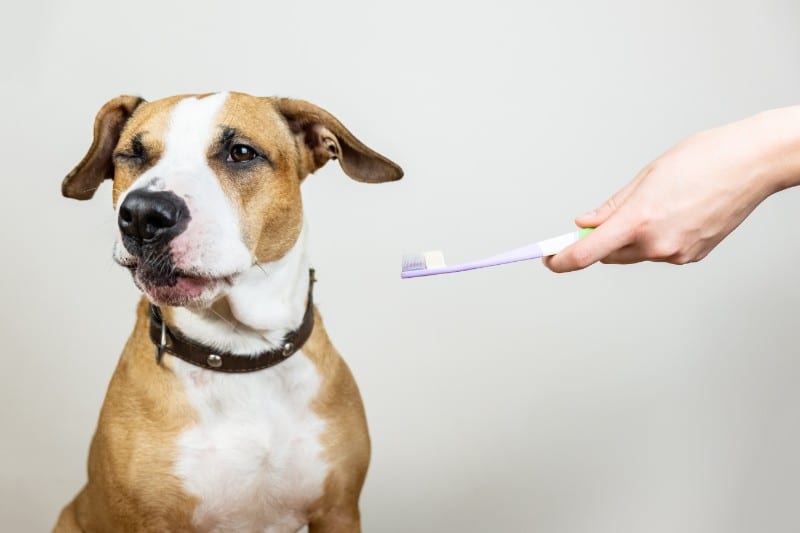
At Schertz Animal Hospital, we are passionate about pet dental health. You will hear us preach about periodontal disease, dish about dental diets, and rant about resorptive lesions. In February and March, we are even offering 20% off all dental cleanings (these book fast). We don’t often talk about the main reason many of us head into the dentist – cavities.
So, do dental cavities in dogs exist? You will soon find out!
Dental Cavities in Dogs
While dental cavities in dogs are elusive, they do indeed exist. It used to be thought that they were a myth, but now we know they actually occur in approximately 5% of canine dental patients.
Cavities are more properly referred to as dental caries. They occur when bacterial decay of the tooth occurs due to acid production from oral bacteria as they ferment carbohydrates on the tooth surface. For this to happen, a perfect storm must occur:
- An area for food to accumulate
- Ingestion of fermentable carbohydrates
- High salivary pH
When this occurs the bacteria on the tooth’s surface ferment the carbohydrates in the food into acids, which demineralize the tooth’s enamel. Over time these caries can become quite extensive.
If caught early, dental cavities in dogs can be filled with restorative material. Many times, however, an advanced lesion requires extraction of the tooth.
Catching Caries
So what is a dog owner to do? While periodontal disease is far more common when it comes to dental health issues in the pet population, dental caries are certainly a concern.
Because accumulation of bacteria and carbohydrate sources must occur on the tooth for a cavity to form, anything that slows down the buildup of plaque on the teeth can help prevent them. Using dental health products approved by the Veterinary Oral Health Council can stop caries in their tracks.
Routine oral exams under anesthesia are also a powerful weapon. These preventative exams and cleanings allow us to examine all surfaces of each tooth closely, giving us the opportunity to catch problems when they are still treatable. It is also a great time to thoroughly clean plaque and tartar from those hard-to-reach areas where caries often form.
While dental cavities in dogs may not be as common as they are in people, they are still a painful source of trouble. Knowing that our pets can suffer from these unpleasant lesions drives home the importance of great dental care. Call us today for information on getting started with a proactive dental health care plan for your four-legged family member.
Recent Posts
About Us
We know that choosing the right veterinarian for your pet (and you) can be a challenge. Yet, with our stress-free handling, our long-term, experienced staff, and a state-of-the-art facility, we make the decision an easy one!
